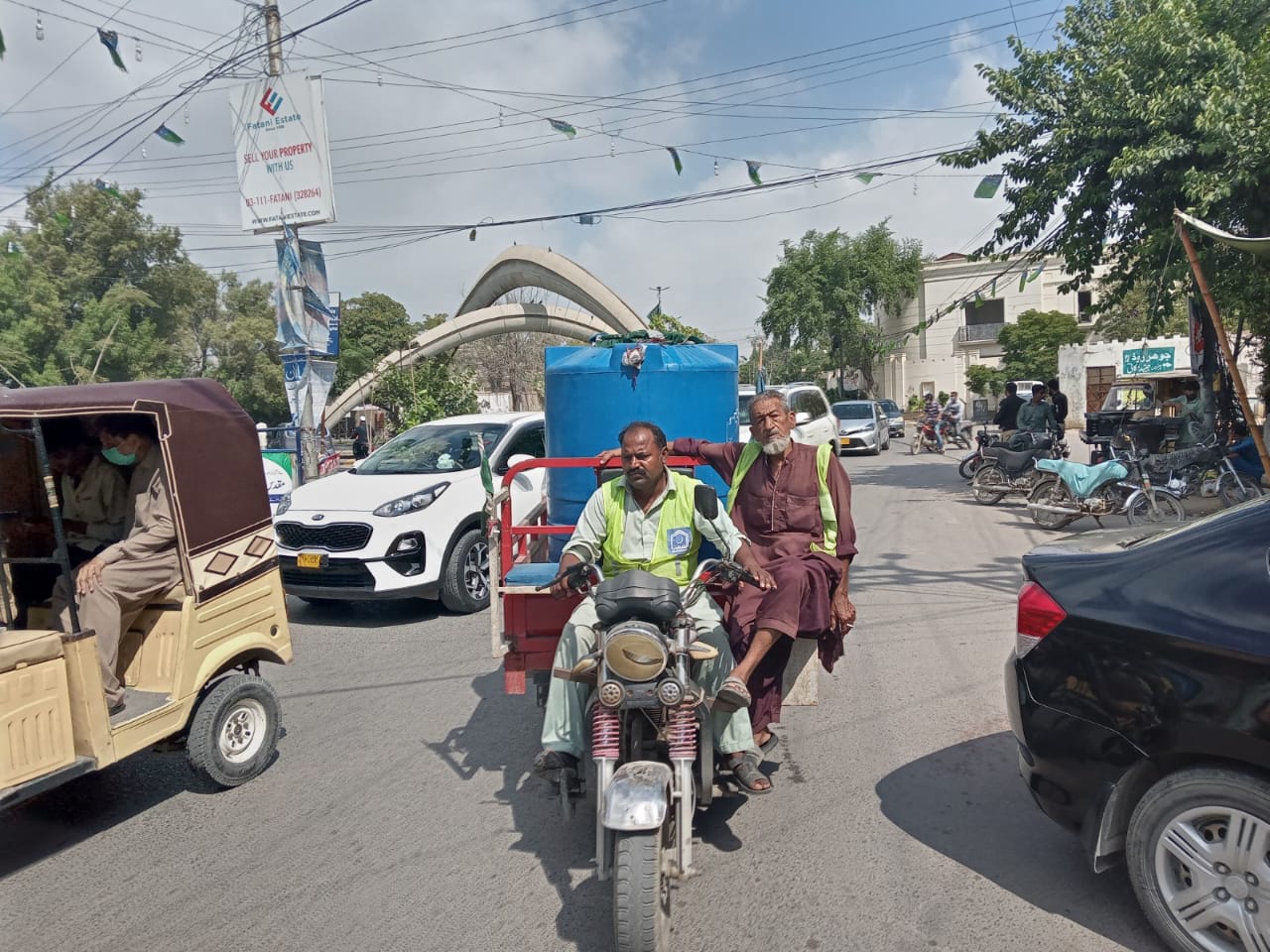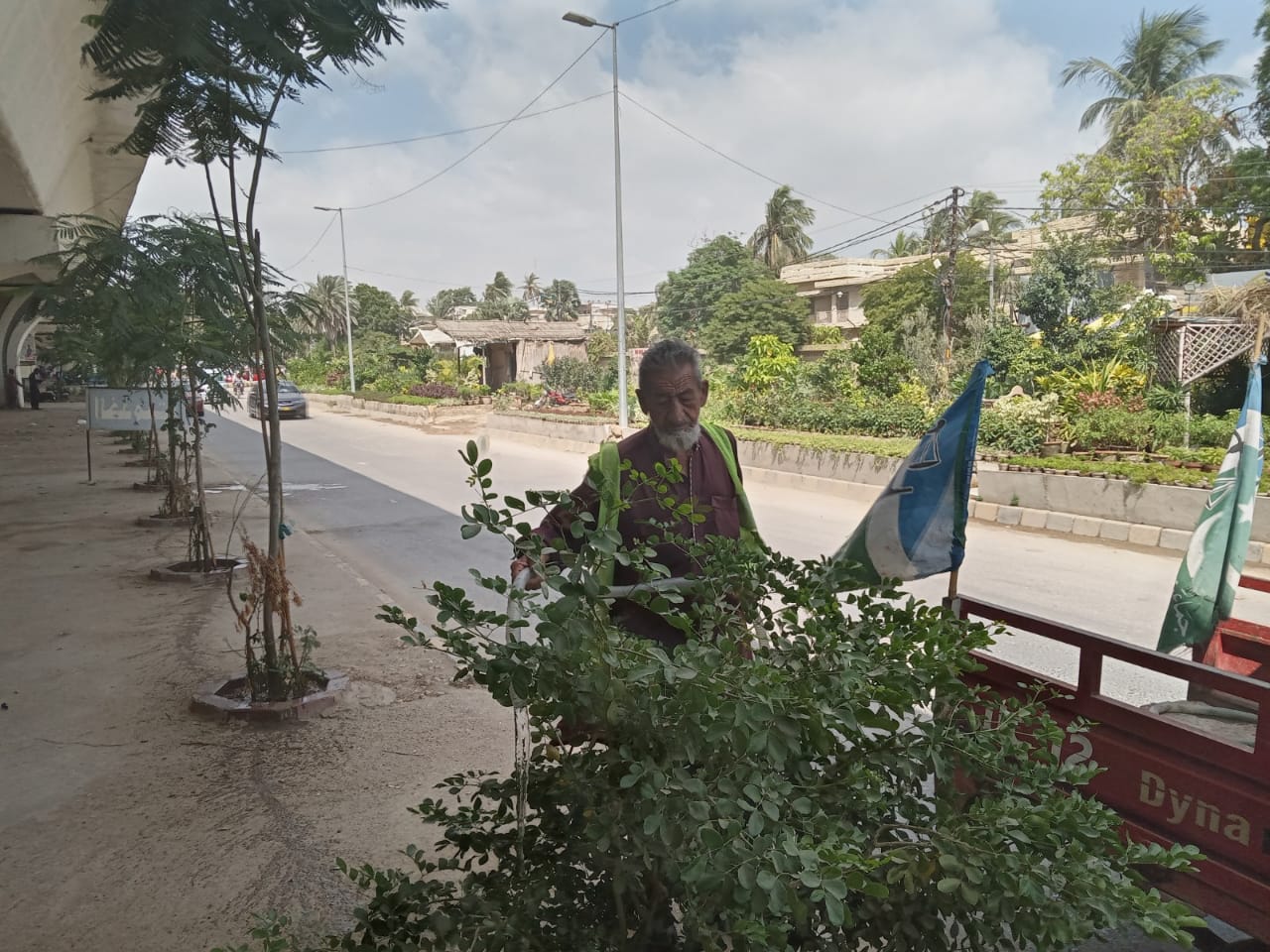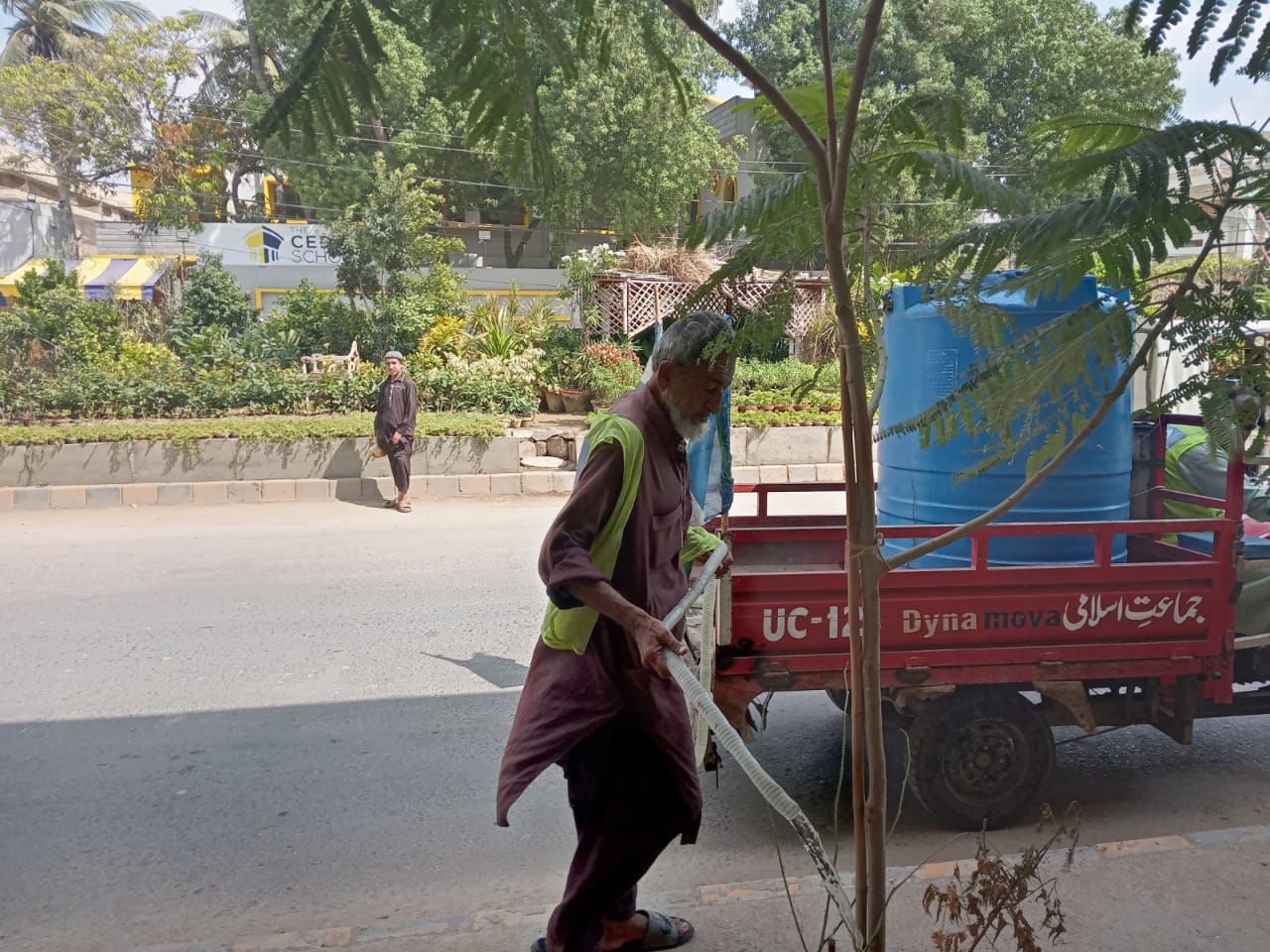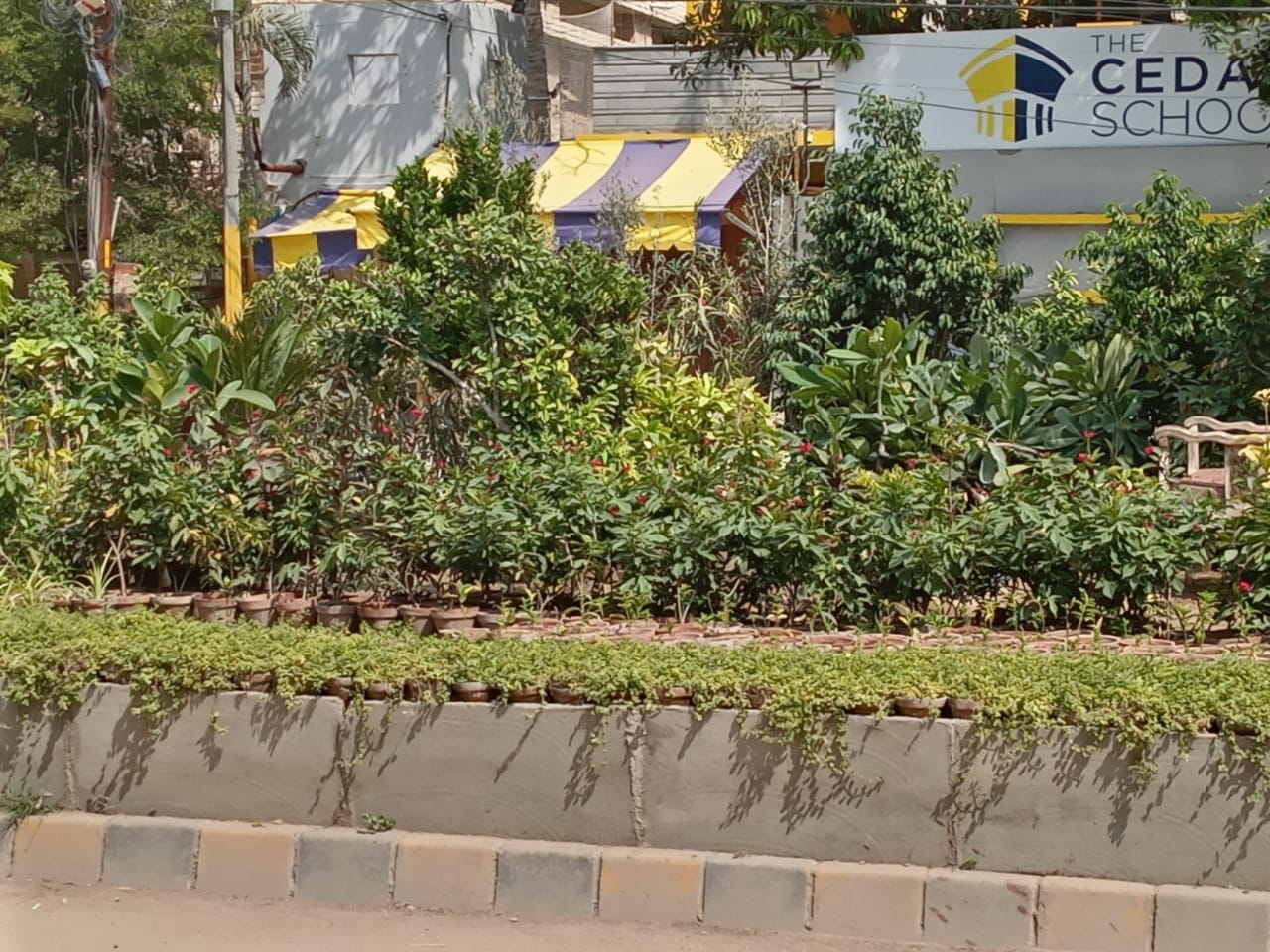

Facebook has long been aware of the harms of its applications and services, according to new internal documents sent to multiple news outlets on Friday.
Documents leaked by a whistleblower revealed that the social media giant does not try to prevent or rectify the issues.
One of the documents showed a Facebook researcher created an account for a test user named Carol Smith for an experiment in the summer of 2019.
Just two days after joining the platform, Smith, who was described as a conservative mother from North Carolina, was given recommendations by Facebook to join groups dedicated to QAnon – a conspiracy theory movement.
Although Smith did not follow the QAnon groups, her feed was filled with related groups and pages within a week, which showed that Facebook’s practices violated its own rules against misinformation and hate speech.
After supporters of former US President Donald Trump raided Capitol Hill on Jan. 6, Facebook employees were unprepared to prevent Trump’s “Stop the Steal” movement, the documents showed.
Frances Haugen, a former Facebook employee turned whistleblower, first leaked internal documents earlier this month.
She told a Senate committee that choices being made inside Facebook are “disastrous” for children, public safety and privacy, and stressed that “congressional action is needed.”/aa
Over the next few years, trade between Turkey and Nigeria will rise “dramatically” from its current level of $2 billion, according to Nigeria’s top trade official.
Speaking to Anadolu Agency on the sidelines of the Third Turkey-Africa Economic and Business Forum in Istanbul, which ended Friday, Richard Adeniyi Adebayo, Nigeria’s industry, trade and investment minister, called the forum a “step in the right direction.”
The two-day forum, organized by Turkey’s Foreign Economic Relations Board (DEIK) in association with the Turkish Trade Ministry and African Union Commission, hosted around 3,000 African and Turkish businesspeople as well as government ministers and other top officials from 45 African countries.
“I believe it will bring our countries closer,” said Adebayo. “And I also believe that it gives us an opportunity to discuss the various areas of interest, especially trade opportunities, that exist between both countries.”
Nigeria was the final stop of Turkish President Recep Tayyip Erdogan’s four-day African tour this week, following Angola and Togo. It was Erdogan’s second visit to Nigeria since 2016, the country Turkey sees as one of the biggest trade partners in the continent with a trade volume of more than $2 billion. Turkey and Nigeria aim to increase the trade volume to $5 billion, Erdogan announced during his visit.
Turkey has had ties with Nigeria since it gained independence in 1960, said Adebayo, adding that they have grown closer with the good relationship between Erdogan and Nigerian President Muhammadu Buhari.
Direct flights between Turkey and Nigeria have enabled many Nigerians to visit Turkey to shop for the holidays and for medical tourism, he said.
The countries will grow closer still, he added.
‘Turkish investments different from China’s’
Stating that Turkish investments in Africa are “very different” from Chinese ones, he said: “I've been in discussions with various Turkish industrialists and investors, and they were interested in coming to do business in Africa. They are prepared to give long-term facilities to the African continent.”
In its relations with African countries, Turkey has emphasized a philosophy of “win-win” relationships.
Adding that Turkey is unique in that it straddles both Asia and Europe, he said the Asian side “complements the Islamic side of Africa.” On the European side, he said Africa also has “European roots due to colonization.”
Asked if Nigeria is interested in Turkey’s high-performance armed drones, Adebayo said they are in discussions with the Turkish Defense Ministry. The issue was also discussed during Erdogan’s visit, he said, adding that they are “exploring the Turkish defense industry.”/aa
Turkey will surely achieve its goal of becoming one of the world’s top 10 economies, President Recep Tayyip Erdogan said on Saturday.
The Justice and Development (AK) Party has overcome many challenges in the past 19 years and will continue to adeptly guide Turkey to its 100th anniversary in 2023, Erdogan said at an AK Party event in the central Eskisehir province.
“We will surely reach our goal of becoming one of the world’s 10 largest economies. We are pursuing that goal without any letup in our efforts,” he asserted.
“We are making efforts at home and abroad to ensure that the Turkish economy stands on solid pillars of investment, production, exports and employment.”
On his visit to three African countries this week, Erdogan said Turkey is expanding its influence in a region where it had minimal presence 15 to 20 years ago.
“Our total trade volume with African countries today is more than $25 billion,” he pointed out, adding that Turkey’s investments across Africa exceed $6 billion.
He added that more than 11,000 Africans, who have graduated from Turkish universities, serve as voluntary envoys for Turkey in their countries.
Turkey's struggle 'disturbs colonialists'
Erdogan said Turkey's struggle for a more just world "disturbs colonialists and their collaborators inside Turkey."
He added: "We certainly do not deal with those who speak against Turkey instead of facing their own bloody and murderous past in Africa."
The Turkish president said that those (referring to the West, particularly France) who speak against Turkey killed a million people each in Algeria and Nigeria, and 900,000 in Rwanda.
"They cannot teach us a lesson of humanity. They must first learn about humanity ... they should learn from Turkey," he said./agencies
Most OECD countries have agreed to stop providing export credits for coal-fired power plants, the Organisation for Economic Cooperation and Development said on Friday.
The countries participating are Australia, Britain, Canada, the European Union, Japan, Korea, New Zealand, Norway, Switzerland, Turkey and the United States, the OECD said.
The Paris-based organisation defines export credits as government financial support, direct financing, guarantees, insurance or interest rate support provided to foreign buyers to assist in the financing of the purchase of goods from national exporters.
The OECD said that the ban would cover new coal-fired power plants without operational carbon capture, utilisation and storage (CCUS).
The ban would also cover existing coal-fired power plants unless the purpose of the equipment is to curb pollution and does not extend the lifetime or capacity of the plant, or unless it is for retrofitting to install CCUS.
The ban, which comes as countries prepare for the COP26 climate conference, is expected to take effect by the end of October, the OECD said./agencies
Commodity prices are skyrocketing globally, pushing up the cost of gas and threatening to exacerbate food insecurity in low-income countries. Agricultural prices are expected to end the year 22% higher compared with 2020, the World Bank has said in its latest report on commodities, and they are projected to decline only modestly next year.
The International Monetary Fund is warning the momentum of the global economic recovery is losing steam in part because of increased infections in middle- and lower-income countries.
The cost of growing food is also rising. Fertilizer costs have shot up 55% since January, with some manufacturers reducing or halting production and contributing to elevated food prices. Some agricultural goods, such as rice, have seen slight price declines from recent highs, the report noted.
Where it will matter: The sustained high prices are punishing for lower-income countries such as Zambia but also for middle-income nations like Argentina and Turkey. United Nations agencies have cautioned that more than 20 countries, including Ethiopia, face soaring levels of acute food insecurity.
The number of people affected by food insecurity has risen from 135 million people before the COVID-19 pandemic to 155 million last year, the World Bank noted in its report.
Higher inflation, slower growth: For energy-importing nations, the boom in prices for goods such as natural gas could lead to a crippling burst of inflation, eroding the already diminished spending power of citizens hurt by the pandemic.
A secondary effect would be slowdowns in growth, just as the International Monetary Fund is warning about a two-track economic recovery from COVID-19, with lagging growth prospects for much of the world.
Urban planning: The World Bank noted that urbanization has historically led to higher commodity consumption. However, high-density cities have lower per capita energy consumption than less densely populated cities, increasing the importance of urban planning.
High coal and gas prices could also be a boon for alternatives such as solar and wind, with the bank urging nations to invest in renewables.
Britain’s consumer price index (CPI) is expected to rise sharply in the next six months as a result of soaring international energy and goods prices, according to Fitch Ratings.
The global rating agency said late Friday that it expects CPI inflation to rise to 4.3% by the end of 2021, up from its previous forecast of 3.4% made just last month.
Consumer inflation is anticipated to peak above 5% next April, it said in a statement, while the energy component of CPI inflation is expected to rise by nearly 1 percentage point in the coming months.
"Retail gas and electricity tariffs are set to rise by 12% in October and we assume they rise by a further 20% in April 2022," it added.
Supply chain issues will also push up core goods inflation, excluding energy, which is expected to rise above 5% year-on-year in the UK, according to Fitch.
"UK manufacturers’ input costs have risen sharply and are being passed through to retail prices," it said, adding: "The shock from energy and core goods is unlikely to be sustained beyond the middle of next year."
Fitch warned that the risk of high headline inflation is pushing up medium-term inflation expectations, which is a bigger concern for the Bank of England, since it could fuel a rise in wages and inflation in the services sector./aa
The oil rig count in the US decreased this week, according to the latest data released by oilfield services company Baker Hughes on Friday.
The number of oil rigs, an indicator of short-term production in the country, decreased by 2 to 443 for the week ending Oct. 22 from 445 the previous week.
The number of US oil rigs rose by 232 compared to one year ago.
At Friday's trading close, the price of international benchmark Brent crude stood at $85.72 per barrel, while American benchmark West Texas Intermediate (WTI) was at $83.98 a barrel./aa
Blighted by the vagaries of unplanned urbanization and unchecked industrialization, Pakistan’s commercial capital Karachi is among the most polluted metropolises in South Asia.
Already home to some 20 million people, the port city has little space left for the thousands turning up here every year in the hopes for a better future.

Still, though, construction of more residential and commercial spaces – of every size and design imaginable – continues unabated in every nook and corner of Karachi, driven as much by the unceasing demand as the ruthless greed for profit of real estate developers.
This relentless cycle has turned the coastal city, once known for its temperate climate and breezy evenings, into a concrete jungle gasping for fresh air, where trees and green spaces are reduced to almost a luxury.

However, there are still people striving to give Karachi a greener future, doing what they can in their limited personal capacities.
Sabir Gul is one such individual, who has taken it upon himself to care for more than 2,000 plants and trees in a high-end neighborhood in Karachi’s eastern district.

A retired gardener in his early 70s, Gul is part of a tree plantation campaign launched four years ago by Al-Khidmat Foundation, one of the country’s largest charity organizations.
He is caring for plants and trees in Mohammad Ali Society, which has gone from being one of the city’s cleanest and greenest residential areas to a maze of high-rises and glossy buildings in the past two decades.

Thousands of trees have been chopped down in the locality to make way for new houses and buildings, but Gul and the foundation are determined to undo at least some of the seemingly irreparable damage.
Every morning, Gul and his assistant load a big water tank onto a specially modified three-wheeled motorcycle and set out to water and check on all plants and trees in the sprawling neighborhood.
It takes them eight to 10 hours to cover the entire area, with an hour-long break for lunch and noon prayers.
“My love for plants prompted me to join this campaign,” said Gul, who worked as a gardener at a school in Karachi for 25 years and joined the foundation as a volunteer in 2010.
The love he speaks of is evident in how tenderly Gul, clad in a shalwar kameez with his gray hair and beard neatly trimmed, waters and prunes a plant on a narrow greenbelt along the busy Shaheed-e-Millat Road as honking vehicles whiz past.
“I have never taken it as a job; this is a cause. These plants are like my kids. I take care of them as a father,” he told Anadolu Agency.
Not just the government’s duty
Pakistan is among the 10 countries most at risk from climate change.
Prime Minister Imran Khan has taken up the issue and its related challenges at various global forums, calling for urgent international action.
At home, his government has been pursuing an ambitious “10 Billion Tree Tsunami” project that aims to restore the country’s rapidly depleting forest cover and also plant trees in urban settings.
Gul, however, believes that tackling the threat of climate change is “not just the government’s duty.”
“He [Khan] has his own domain and duties. But as a citizen, it’s my job to do my bit,” said the elderly volunteer.
Pakistan has recently launched an “Ecosystem Restoration Fund” to support nature-based solutions to climate change and facilitate environmentally resilient initiatives for afforestation and biodiversity conservation.
Under the project, some 15 protected areas are being developed across the country to conserve over 7,300 square kilometers (approximately 2,820 square miles) of land, which will also create over 5,500 related jobs./aa
Much more to be done
In the past decade, extreme weather patterns, floods, shrinking agriculture, sea erosion, and lingering dry spells have caused widespread migration within Pakistan, mainly to big cities such as Karachi.
For instance, estimates indicate more than 2 million people were displaced by floods that affected one-fifth of the country in 2010 and 2011, sparking massive a movement of people from rural areas to urban centers.
The growing need for housing has triggered a rush of construction in major cities, including Karachi, with the greatest casualty almost always being trees and green spaces.
“Every day, we see construction of a new building starting somewhere in Karachi,” Junaid Mukati, a local politician who is heading Al-Khidmat’s tree plantation drive, told Anadolu Agency.
“Nowhere are the authorities or citizens worried about how many trees and green spaces are being wiped out to make way for these new structures.”
Mukati said his organization has planted more than 8,000 trees during the ongoing drive, but acknowledged that “much more needs to be done.”
“But, as long as we have dedicated people like Gul, there will always be hope,” he said.
The Ministry of External Affairs in the past has asserted that India is proud of its secular credentials, its status as the largest democracy and pluralistic society with a longstanding commitment to tolerance and inclusion
A group of over 30 American lawmakers led by Congresswoman Ilhan Omar has introduced a bill in the House of Representatives against growing incidents of Islamophobia worldwide.
The bill urges the State Department to include state-sponsored Islamophobic violence and impunity in its annual human rights reports.
The creation of the Special Envoy will help policymakers better understand the interconnected, global problem of anti-Muslim bigotry, the group of over 30 lawmakers said.
It will also establish a comprehensive strategy for establishing US leadership in combating Islamophobia worldwide.
Proponents of the bill, which requires the State Department to create a Special Envoy for monitoring and combating Islamophobia, have put India in the category of China and Myanmar for alleged atrocities against Muslims.
The Ministry of External Affairs in the past has asserted that India is proud of its secular credentials, its status as the largest democracy and pluralistic society with a longstanding commitment to tolerance and inclusion.
The Indian Constitution guarantees fundamental rights to all its citizens, including its minority communities, it has said.
It is widely acknowledged that India is a vibrant democracy where the Constitution protects religious freedom, and where democratic governance and the rule of law further promote and protect fundamental rights, the MEA has maintained.
Congresswoman Omar said, "We are seeing a rise in Islamophobia in nearly every corner of the globe."
A press statement issued by her office said that there has been a staggering rise in incidents of violent Islamophobia.
Whether it is the atrocities being committed against the Uyghurs in China and the Rohingya in Burma (Myanmar), the crackdowns on Muslim populations in India and Sri Lanka, the scapegoating of Muslim refugees and other Muslims in Hungary and Poland, the acts of white supremacist violence targeting Muslims in New Zealand and Canada, or the targeting of minority Muslim communities in Muslim-majority countries like Pakistan, Bahrain and Iran, the problem of Islamophobia is global in scope, it said.
The Combating International Islamophobia Act is endorsed by several organisations including the American Muslim Empowerment Network (AMEN), the Council on American-Islamic Relations (CAIR) and the South Asian Americans Leading Together (SAALT).
For over a decade, we have seen increasing incidents of violent Islamophobia both in the US and worldwide from the genocide of the Rohingya in Burma (Myanmar) and Uyghurs in China to the attacks on Muslim refugees in Canada and New Zealand, said Congresswoman Jan Schakowsky.
Nihad Awad from CAIR said that while global Islamophobia, anti-Muslim state policies and hate incidents have increased for the past two decades, the American Muslim community has consistently called for the creation of a special envoy position to monitor and combat this rising tide of hate.
Our nation needs better tools to combat Islamophobic state policies and violence in countries like China, India, Myanmar, Sri Lanka, the European Union and elsewhere, he said.
Global Islamophobia is not only a threat to the safety and security of Muslims here and abroad, it is also a threat to international religious freedom and democratic principles.
CAIR is calling on congressional leadership and the Biden-Harris administration to support the Combating International Islamophobia Act and make this special envoy position a reality," Awad added./FP
The UN said Friday it is worried about “Israel” declaring six Palestinian rights groups terror organizations.
The UN Human Rights Office in the occupied Palestinian territory said in a statement that “counter-terrorism legislation must not be used to constrain legitimate human rights and humanitarian work.”
"The designation decisions published by the National Bureau for Counter Terror Financing of “Israel” list extremely vague or irrelevant reasons, including entirely peaceful and legitimate activities such as the provision of legal aid and the ‘promotion of steps against Israel in the international arena,” it said.
"The UN Human Rights Office calls on “Israel” to fully respect the rights to freedom of association and expression, without any interference or harassment against the organizations or their staff," it added.
In a separate statement, the Euro-Mediterranean Human Rights Monitor said the move was another link in the chain of undermining the right to civil and human rights work in Palestinian territories.
The Geneva-based rights organization added that "the classification aims to prevent the documentation of Israeli violations and support their victims amid an absence of international response to that.”
The group urged the international community to pressure “Israeli” authorities to limit their policies in subduing critical voices of their practices and violations in Palestinian territories.
Serious violation of international law
Palestinian Prime Minister Mohammad Shtayyeh rejected the Israeli decision, calling it a serious violation of international law.
He called on the international community and all human rights organizations across the world to condemn the decision.
Israel accused the six groups of having links to the Popular Front for the Liberation of Palestine (PFLP), a group banned by the Israeli military.
According to the Jerusalem Post, the Israeli Justice Ministry outlawed the Addameer Prisoner Support and Human Rights, Al-Haq, the Bisan Center for Research and Development, Defense for Children Palestine, Union of Agricultural Work Committees (UAWC) and the Union of Palestinian Women’s Committees.
The PFLP is the second-largest group in the Palestine Liberation Organization (PLO) and was elected as a member of the Legislative Council in the last parliamentary elections in 2006.
The “Israeli” army in July sealed off the offices of the UAWC, a Palestinian non-profit organization in Ramallah, central West Bank, for six months./agencies